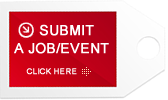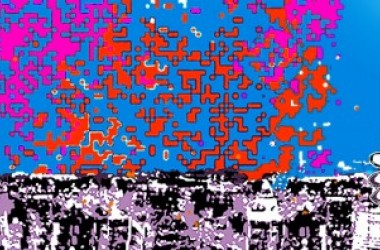*** WORKSHOP ON INFORMATION THEORETIC INCENTIVES FOR ARTIFICIAL LIFE ***
to be held at the
14th International Conference on the Synthesis and Simulation of Living Systems (ALIFE-14)
New York City, 30 July-2 August 2014
Workshop web page: http://www.mis.mpg.de/ay/workshops/alife14ws.html
Conference web page: http://alife14.org
Please forward this mail to other interested parties.
~~~
IMPORTANT DATES
Submission deadline: 2 May 2014
Notification of acceptance: 23 May 2014
Workshop date: 30 July 2014 (date now confirmed)
ABOUT
Artificial Life aims to understand the basic and generic principles of life, and demonstrate this understanding by producing life-like systems based on those principles. In recent years, with the advent of the information age, and the widespread acceptance of information technology, our view of life has changed. Ideas such as "life is information processing" or "information holds the key to understanding life" have become more common. But what can information, or more formally Information Theory, offer to Artificial Life?
One relevant area is the motivation of behaviour for artificial agents, both virtual and real. Instead of learning to perform a specific task, informational measures can be used to define concepts such as boredom, empowerment or the ability to predict one's own future. Intrinsic motivations derived from these concepts allow us to generate behaviour, ideally from an embodied and enactive perspective, which are based on basic but generic principles. The key questions here are: "What are the important intrinsic motivations a living agent has, and what behaviour can be produced by them?"
Related to an agent's behaviour is also the question on how and where the necessary computation to realise this behaviour is performed. Can information be used to quantify the morphological computation of an embodied agent and to what degree are the computational limitations of an agent influencing its behaviour?
Another area of interest is the guidance of artificial evolution or adaptation. Assuming it is true that an agent wants to optimise its information processing, possibly obtain as much relevant information as possible for the cheapest computational cost, then what behaviour would naturally follow from that? Can the development of social interaction or collective phenomena be motivated by an informational gradient? Furthermore, evolution itself can be seen as a process in which an agent population obtains information from the environment, which begs the question of how this can be quantified, and how systems would adapt to maximise this information?
The common theme in those different scenarios is the identification and quantification of driving forces behind evolution, learning, behaviour and other crucial processes of life, in the hope that the implementation or optimisation of these measurements will allow us to construct life-like systems.
~~~
WORKSHOP FORMAT
The workshop is scheduled for half a day (this has changed due to space limitations). The workshop will consist of a keynote (by Chris Adami), presentations and discussions. To participate in the workshop by giving a presentation we would ask you to submit an extended abstract. We are interested in both, the current existing approaches in the field, and possible future avenues of investigation. Student presentations are an option for younger researchers, new to the field, that would like to outline and discuss their research direction or early results.
The general idea is to offer a forum for those interested in applying information theory and similar methods to the field of artificial life, to have a focused discussion on both, the possibilities and technical challenges involved. After the workshop, there will a special issue in the Journal "Entropy" on the topic of the workshop, and we encourage participants to submit an extended version of their work.
Further details will be announced as soon as possible.
~~~
SUBMISSION AND PARTICIPATION
How to submit
If you want to participate in the workshop by giving a talk we would invite you to send us an email (itialife@gmail.com) by 2 May 2014 with
- name
- contact details
-1-2 pages long extended abstract.
We are interested in previous work related to the subject and current work, including preliminary results.
Specifically for students we also offer the option to submit for a shorter student talk, to present some early results, and discuss their approach to the field. In this case, please submit a 1-2 pages long extended abstract and indicate that you are interested in a student presentation.
If there are any questions, or if you just want to indicate interest in submitting or attending, please feel free to mail us at itialife@gmail.com.
~~~
CONTACTS
Web: http://www.mis.mpg.de/ay/workshops/alife14ws.html
Email: itialife@gmail.com
~~~
Organisers:
Christoph Salge, Keyan Zahedi, Georg Martius and Daniel Polani





